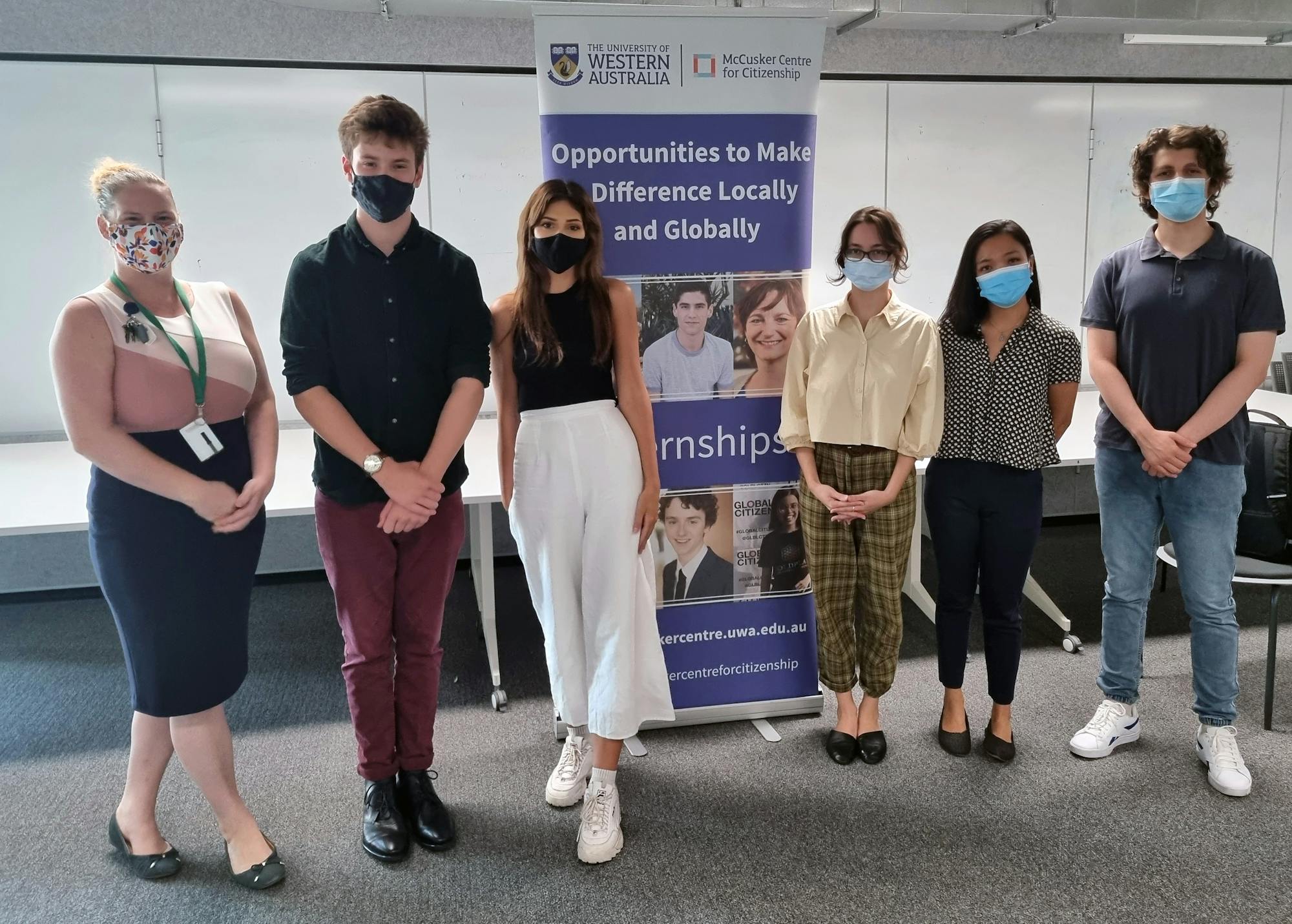A group of 23 UWA students studying a wide range of courses have joined with community organisations and industry professionals to develop innovative and practical solutions to tackle modern slavery in WA communities.
Led by UWA’s McCusker Centre for Citizenship in partnership with Perth-based Circle Green Community Legal, the Approaches to Wicked Problem summer unit saw UWA students work alongside industry professionals from Circle Green, IGO Limited MercyCare and SHQ (Sexual Health Quarters).
Political Science and International Relations student Cephas Issa said he was drawn to the unit as it seeks to tackle a real-world issue in a group setting.
Cephas’ small team was tasked with developing solutions to help end modern slavery in the specific context of WA supply chains, with expert guidance from IGO Limited.
“We began this unit with desktop research, really trying to define the problem, especially considering how complex and multi-faceted it is,” said Cephas.
“Our project sponsor from IGO provided us with the guidance and resources we required to start and conclude this project. It was an extremely positive experience, and our group was grateful for their generous support,” he said.
Cephas’ team interviewed a range of professionals working across WA supply chains to develop a roadmap of concrete and practical ways to help put a stop to modern slavery – an “extremely difficult” task considering the complexity of the issue.
Project Sponsor Jo Scullin, who works across both IGO Limited and Circle Green, was impressed with Cephas and his team’s recommendations.
“The research that the students conducted and the insights that they presented were invaluable and will help to guide our strategy for addressing this problem in future,” said Jo.
Cephas says that collaborating with students from across different courses, as well as with industry professionals, was critical for the success of their project.
“Working with students from different fields made this course extremely enjoyable and relevant to the workforce. We were all able to contribute to the project according to our strengths and interests,” said Cephas.
“I believe this unit has expanded my collaborative, problem-solving and critical-thinking skills, and I feel more confident in working with others to tackle a real-world problem, whether this be at university or even in the workforce,” says Cephas.

